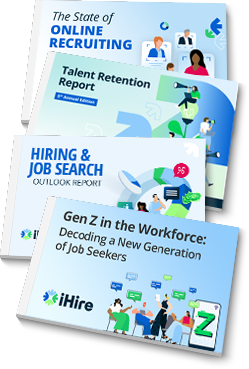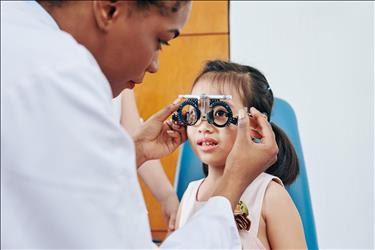- Employer Resources
- |
- Last Updated: October 02, 2025

How to Measure Emotional Intelligence in Healthcare Interviews
You’ve probably experienced this scenario: A candidate sits across from you with impressive clinical credentials and years of experience. As the interview progresses, something sets them apart. When you ask about challenging patient situations, they don’t just recite protocols – they speak passionately about connecting with patients during their most vulnerable moments. They describe specific strategies for de-escalating tense family meetings, share how they’ve comforted frightened patients, and explain their approach to supporting colleagues during difficult cases.
Their responses reveal someone who doesn’t just treat symptoms – they understand the human experience of illness and healing. If this candidate impressed you, you’ve just witnessed the power of emotional intelligence in healthcare hiring.
In a field where technical competence is expected but emotional connection can be life-changing, learning to identify and assess emotional intelligence in healthcare interviews isn’t just helpful – it’s essential for building exceptional healthcare teams.
What Is Emotional Intelligence in Healthcare?
Emotional intelligence in healthcare goes far beyond simply being “nice” to patients. It’s the sophisticated ability to recognize, understand, and effectively manage emotions in high-stakes medical environments where lives (quite literally) hang in the balance.
Emotional intelligence in healthcare manifests in several key ways:
Clinical Decision-Making: A respiratory therapist who notices a patient’s subtle anxiety about a breathing treatment and adjusts their approach accordingly, potentially preventing a panic attack that could complicate care.
Crisis Management: An emergency room nurse who remains calm and reassuring while starting an IV on a frightened child, using their emotional awareness to make a traumatic situation more manageable.
Interdisciplinary Communication: A physical therapist who recognizes when a physician is stressed about a patient’s progress and finds the right moment and tone to share important observations.
Patient Advocacy: An occupational therapist who senses that an elderly patient doesn’t fully understand discharge instructions and takes extra time to explain, potentially preventing a readmission.
The four core components of emotional intelligence take on special significance in healthcare:
- Self-awareness: Recognizing when your own stress, fatigue, or personal biases might affect patient care
- Self-regulation: Managing your emotions during codes, difficult diagnoses, or challenging family dynamics
- Social awareness: Reading non-verbal cues from patients who can’t communicate verbally, or sensing team tension during procedures
- Relationship management: Building trust with patients quickly, collaborating effectively during emergencies, and maintaining therapeutic relationships
Assessing these components of emotional intelligence in a healthcare interview is essential to hiring the right candidate.
Why Emotional Intelligence Is Critical in Healthcare
In the demanding and high-stakes environment of healthcare, emotional intelligence becomes more than a desirable trait; it’s a cornerstone of effective practice. Its impact ripples across various crucial aspects, from direct patient care to the well-being of the healthcare team itself.
Patient Safety and Clinical Outcomes
Research consistently shows that higher emotional intelligence in healthcare leads to safer, more effective care. For example, when a cardiac nurse recognizes that a patient’s irritability might signal pain rather than personality, they’re more likely to assess for complications that could prevent serious events.
Emotionally intelligent healthcare workers also excel at:
- Recognizing early signs of patient distress before they become critical
- Encouraging patient compliance through trusted relationships
- Identifying when patients or families need additional support
- Preventing medical errors by maintaining focus under emotional pressure
Team Dynamics and Communication
Healthcare teams face unique emotional challenges – from life-and-death decisions to complex family dynamics. Emotionally intelligent team members can:
- Navigate the hierarchy between physicians, nurses, and other healthcare professionals
- Provide emotional support to colleagues during patient losses
- Communicate effectively during high-stress situations like codes or emergencies
- Resolve conflicts that could impact patient care
Consider an operating room where tension between the surgeon and anesthesiologist is affecting the entire team. An emotionally intelligent surgical technician might recognize the dynamic and find ways to ease communication, potentially preventing complications.
Burnout Prevention and Job Satisfaction
Healthcare workers with strong emotional intelligence are better equipped to handle the emotional demands of their jobs. They’re more likely to:
- Recognize their own stress signals before reaching burnout
- Seek appropriate support when dealing with difficult cases
- Maintain perspective during challenging shifts
- Find meaning and satisfaction in their work despite its difficulties
Patient and Family Experience
In healthcare, clinical outcomes matter, but so does the human experience. Emotionally intelligent healthcare providers can:
- Help anxious patients feel heard and understood
- Support families through difficult diagnoses or end-of-life decisions
- Adapt their communication style to different cultural backgrounds and health literacy levels
- Create positive experiences even in challenging medical situations

How to Test Emotional Intelligence in Healthcare Interviews
Now that you understand the profound impact of emotional intelligence in healthcare, the next crucial step is effectively assessing it during the hiring process. This section will delve into practical strategies to help you identify emotionally intelligent candidates.
Emotional Intelligence Questions for Interviews
Beyond general observations, structured emotional intelligence questions for interviews are vital for direct assessment. This section provides specific interview questions categorized by the core components of emotional intelligence, designed to elicit revealing behavioral responses.
Self-Awareness Questions
“Tell me about a time when you realized your personal emotions were affecting your patient care. How did you recognize this, and what did you do about it?”
What to look for: Candidates should demonstrate awareness of their emotional states and have strategies for managing them. Strong answers might include recognizing signs of empathy fatigue, or personal loss impacting interactions with grieving families. Poor answers may be surface level or even blame others for a situation.
“Describe a situation where you had to admit a mistake to a patient or their family. How did you handle this conversation?”
What to look for: Look for honesty, accountability, and emotional regulation. Candidates should show they can manage their own discomfort while prioritizing patient trust and safety.
“Can you think of a time when you felt overwhelmed during a shift? How did you recognize the signs, and what did you do to manage the situation?”
What to look for: Strong emotional intelligence in healthcare includes recognizing personal limits and having healthy coping strategies. Red flags include denying ever feeling overwhelmed or using unhealthy coping mechanisms.
Self-Regulation Questions
“Tell me about the most emotionally challenging patient experience you’ve experienced. How did you process your emotions while still providing care to other patients?”
What to look for: Candidates should demonstrate the ability to compartmentalize emotions appropriately while still acknowledging their impact. Look for healthy processing strategies and professional boundaries.
“Describe a time when you had to deliver difficult news to a patient or family member. How did you prepare for and manage your reactions during the conversation?”
What to look for: Strong candidates will show preparation strategies, emotional control during difficult conversations, and appropriate follow-up support for both patients and themselves. Red flags include offloading the responsibility to others or otherwise avoiding the situation entirely.
“Give me an example of when you had to work with a colleague who was having a particularly difficult day. How did you adjust your approach?”
What to look for: Look for flexibility, empathy for colleagues, and the ability to maintain team function even when individual team members are struggling.
Social Awareness Questions
“Tell me about a time when you noticed a patient was in distress but hadn’t verbally expressed it. How did you recognize the distress and what did you do?”
What to look for: Strong candidates will describe specific non-verbal cues they noticed and appropriate interventions. This reveals their ability to read emotional states and respond appropriately.
“Describe a situation where you had to work with a patient from a cultural background very different from your own. How did you adjust your approach to provide culturally sensitive care?”
What to look for: Look for cultural humility, adaptability, and efforts to understand different perspectives. Strong candidates will show curiosity rather than assumptions.
“Can you give me an example of when you recognized that a patient’s family was struggling with a diagnosis? How did you respond?”
What to look for: Candidates should demonstrate the ability to read family dynamics and provide appropriate support without overstepping professional boundaries or violating patient privacy.
Soft Skills in Healthcare Related to Emotional Intelligence in Healthcare
While emotional intelligence in healthcare forms a critical foundation, it also manifests as a set of interconnected soft skills in healthcare. This section explores key soft skills in healthcare that are intrinsically linked to emotional intelligence and how they contribute to a well-rounded professional.
Empathy and Compassion
Empathy in healthcare goes beyond feeling sorry for patients – it’s about understanding their emotional experience and responding appropriately. During interviews, look for candidates who can:
- Describe specific ways they’ve shown empathy without becoming emotionally overwhelmed
- Explain how they balance empathy with professional boundaries
- Give examples of adjusting their approach based on patients’ emotional needs
Cultural Competence
In today’s diverse healthcare environment, emotional intelligence must include cultural awareness. Strong candidates will demonstrate:
- Recognition that emotional expression varies across cultures
- Ability to adapt their communication style to different cultural contexts
- Efforts to learn about and respect different cultural approaches to healthcare
Stress Management
Healthcare is inherently stressful, and emotional intelligence in healthcare includes managing that stress effectively. Look for candidates who:
- Have healthy coping strategies for work-related stress
- Can maintain emotional stability during crisis situations
- Recognize when they need support and aren’t afraid to seek it
Communication and Active Listening
Emotional intelligence in healthcare providers includes exceptional communication. They should demonstrate:
- Ability to listen actively to patients and families
- Skill in explaining complex medical information with empathy
- Capacity to have difficult conversations with compassion
Adaptability and Resilience
Healthcare environments change rapidly, and emotionally intelligent providers can adapt while maintaining their emotional equilibrium. Strong candidates will show:
- Ability to adjust their approach based on changing patient needs
- Resilience in bouncing back from difficult situations
- Flexibility in working with different teams and patient populations
Demonstrating a good range of these soft skills in healthcare can be a green flag that this candidate can handle the emotional demands of healthcare.
Connect With Qualified, Passionate Healthcare Pros Today
Create Your Free Account to Get Started

We Value Your Privacy
Common Mistakes in Assessing Emotional Intelligence in Healthcare
Even with a strong understanding of emotional intelligence in healthcare and effective assessment techniques, pitfalls can emerge during the interview process. This section highlights common mistakes that can lead to misjudging a candidate’s emotional capabilities, offering insights on how to avoid them.
Confusing Personality with Emotional Intelligence
One of the biggest mistakes employers make is assuming that naturally outgoing or cheerful candidates automatically have high emotional intelligence in healthcare settings. In reality, introverted candidates may excel at one-on-one patient interactions, and quiet candidates might be excellent at reading non-verbal cues. Conversely, extroverted candidates aren’t necessarily better at managing emotions under pressure. Focus on specific behaviors and responses rather than personality traits.
Over-Relying on Technical Credentials
While clinical competence is essential, don’t let impressive technical credentials overshadow emotional intelligence deficits. A candidate with excellent clinical skills but poor emotional intelligence in healthcare can create patient safety risks through poor communication, contribute to team dysfunction and workplace conflicts, struggle with patient compliance and satisfaction, and be more likely to experience burnout and leave.
Ignoring Cultural Differences in Emotional Expression
Be careful not to penalize candidates whose emotional expression differs from your own cultural background. Instead, focus on the candidate’s ability to recognize and respond to emotions, ask about their experience working with diverse populations, and look for cultural humility and willingness to learn. Also, avoid making assumptions about emotional intelligence in healthcare based on communication styles.
Misunderstanding Neurodivergent Communication Styles
Neurodivergent candidates, including those with autism, ADHD, or other neurological differences, may express emotional intelligence differently than neurotypical candidates through varying eye contact patterns, facial expressions, or direct communication styles. However, many neurodivergent healthcare professionals demonstrate exceptional emotional intelligence through their ability to recognize patterns in patient behavior, provide consistent care, and show deep empathy despite different communication styles.
When interviewing neurodivergent candidates, focus on their actual experiences and outcomes rather than their presentation style. Consider providing questions in advance or allowing written responses when appropriate, as many neurodivergent professionals excel in healthcare roles requiring attention to detail and systematic patient care approaches.
Failing to Assess Growth Potential
Emotional intelligence in healthcare can be developed with proper support and training. Don’t automatically dismiss candidates who show self-awareness about areas for improvement and a willingness to improve. These candidates may develop into exceptional healthcare providers with the right mentorship and support.
Using Leading Questions
Avoid questions that telegraph the “right” answer, such as “Do you think empathy is important in healthcare?” Instead, use open-ended behavioral questions that require candidates to demonstrate their emotional intelligence in healthcare through specific examples.
Inconsistent Assessment Across Candidates
To ensure consistency in assessing emotional intelligence in healthcare interviews, all interviewers should use standardized questions for every candidate. This process can be further enhanced by creating scoring rubrics specifically for emotionally intelligent responses. Additionally, it is crucial to train all interview team members on what specific behaviors and cues to look for. Finally, documenting specific examples of emotional intelligence behaviors observed during interviews will help maintain a consistent and objective evaluation across the board.
By recognizing and actively avoiding these common pitfalls, healthcare employers can significantly improve the accuracy and effectiveness of their emotional intelligence assessments. This meticulous approach ensures that hiring decisions are based on a comprehensive understanding of a candidate’s true capabilities, leading to stronger teams and better patient outcomes.
Integrate Emotional Intelligence in Healthcare Interviews
Emotional intelligence isn’t a nice-to-have soft skill in healthcare – it’s a fundamental competency that can determine the success of your hires and the quality of care your patients receive. By systematically assessing emotional intelligence in healthcare interviews, you’re not just filling positions; you’re building a team of compassionate, competent healthcare professionals who can thrive in the emotional demands of healthcare work.
Start implementing these strategies in your next round of interviews. Your patients, your team, and your organization will benefit from the emotionally intelligent healthcare professionals you’ll attract and retain.
Ready to transform your healthcare hiring process? Check out the iHire Resource Center!
RELATED RESOURCES
Hiring? You're in the Right Place.
- Reach unique talent: 51% of our candidates aren't using other job boards
- Connect your ATS and get 6x more applications with iHire's apply process
- Get matching candidate resumes sent straight to your inbox
We Value Your Privacy




